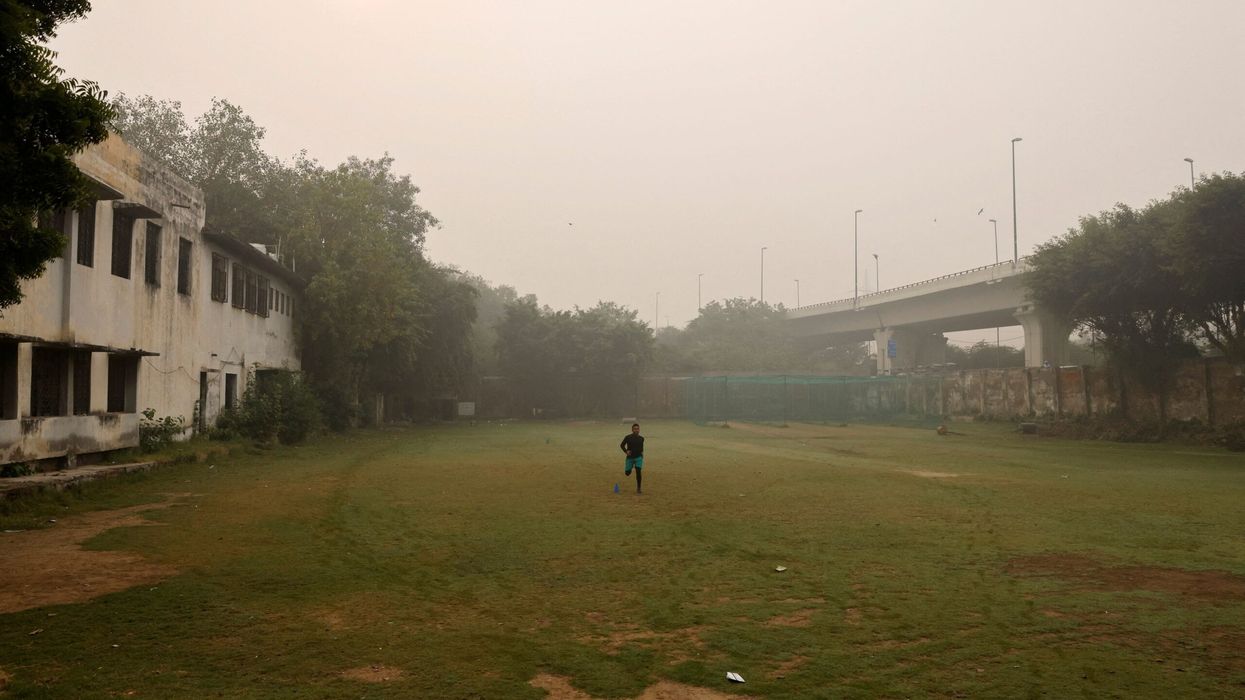The medical community in Delhi, India has raised alarms about the severe air pollution in the city. According to doctors, the polluted air not only impacts the lungs but also affects vital organs like the heart and brain in individuals of all age groups.
There has been a sudden increase in cases of headache, anxiety, irritation, confusion, and decrement of cognitive abilities, especially among vulnerable populations such as the elderly, school-going children, and pregnant women, Dr Neeraj Gupta, head of the pulmonary medicine department at the Safdarjung Hospital in Delhi said.
"Neurocognitive ability is directly linked to rising nitrogen dioxide, sulphur dioxide, and carbon monoxide in the air as they impact the nervous system.
"So, gas chamber is a technically correct term to be used because of the rise of the concentration of harmful gases and not just particulate matter," he said.
Dr Gupta further said a study conducted in North Carolina among school going children has shown that the Air Quality Index (AQI) has a direct impact on their mathematical abilities.
The only way out is avoidance of exposure to this toxic air. Therefore, it has been advised that vulnerable populations and patients with pre-existing conditions like asthma, chronic obstructive pulmonary disease (COPD) and ischaemic heart disease should try to stay indoors and take preventive measures.
A toxic haze lingered over India’s capital city for the sixth consecutive day on Sunday (5) as pollution levels once again reached the "severe-plus" category due to unfavourable wind conditions, particularly calm winds during the night.
The AQI deteriorated from 415 at 4 pm on Saturday to 460 at 7 am on Sunday.
City hospitals have been witnessing an increase in the number of patients suffering from respiratory and breathing complications for the last few days, doctors said.
Former All India Institute of Medical Sciences (AIIMS) director Dr Randeep Guleria said there have been studies that have linked air pollution to increased risks of brain stroke, dementia, and cognitive decline.
"Because of the significant multi-organ health hazard pollution causes to humans, there is an urgent need to take sustainable actions to bring down the levels of air pollution in the Indo-gangetic plains," Guleria, who is currently the chairman of internal medicine, respiratory and sleep medicine at the Medanta hospital, said.
Every winter, the air quality drops down to poor levels and a lot of discussions take place but no concrete sustainable action is taken, he said.
"Also, data suggests that throughout the year, in more than 50 per cent of days, the air quality continues to be in an unacceptable range, thereby exposing citizens to the harmful effects of air pollution on most days, which further aggravates during winter," Guleria said.
"Along with prolonged coughing, breathing difficulty, throat infection and chest tightness, patients are complaining about anxiety, confusion and increased irritability. This air pollution is a major crisis that needs to be mitigated urgently," he said.
(PTI)




